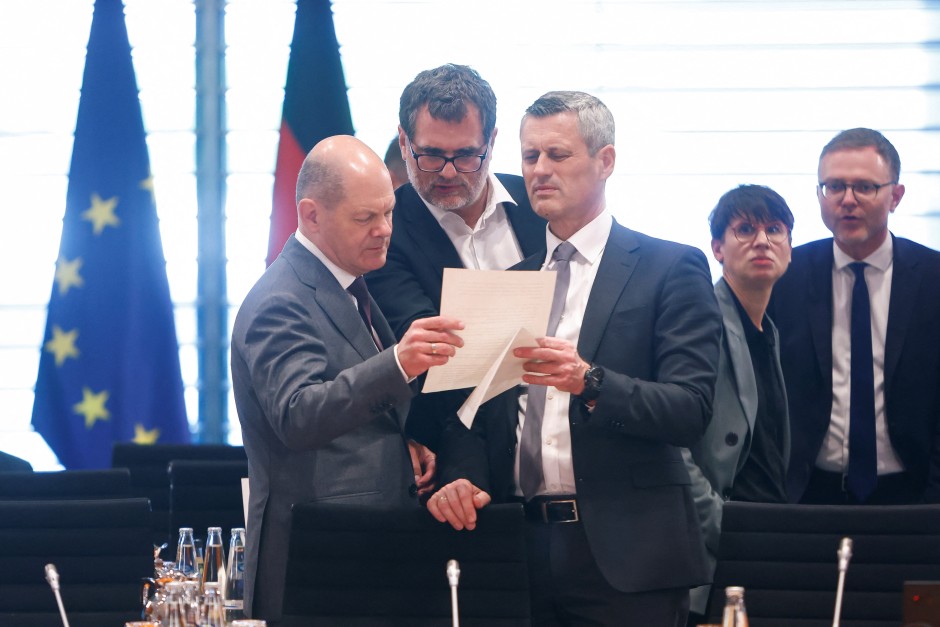
Band the federal states did not make a fundamental decision at their refugee summit about permanently higher federal funds for the accommodation and care of those seeking protection. However, the federal government will increase the refugee allowance to the federal states by one billion euros for 2023.
This is intended to support the federal states in further relieving their municipalities and in financing the digitization of the immigration authorities. The federal government had previously pledged 1.5 billion euros for war refugees from Ukraine this year and 1.25 billion euros for other refugees.
The participants at the meeting stated that there was agreement that dealing with refugee migration is a permanent task for the federal, state and local governments. Against this background, the federal and state governments wanted to clarify how the financing of this task could be regulated in the future. A decision on this should be made at a meeting next November.
“There wasn’t anything else in it”
The joint decision goes on to say that a working group will prepare this decision. Chancellor Olaf Scholz (SPD) and the heads of government of the federal states would discuss the intermediate status at their regular meeting in mid-June.
“We have a discussion ahead of us that is worth every effort, I want to say that explicitly. But solving the task is not easy either, because a lot has happened in recent years, ”said Scholz after the end of the consultation. “We go in there as an open process and nobody can predict the result.”
“More was not possible,” concluded North Rhine-Westphalia’s Prime Minister Hendrik Wüst (CDU). “You have to say that so clearly today.” The federal states have not yet received an answer to the central question of a permanently higher level of federal participation.
For example, there was no agreement on the full assumption of the costs for accommodation and heating for refugees by the federal government, which the federal states and local authorities wanted. The questions about higher cost sharing for integration and for underage refugees are also open. Nevertheless, the additional billion should be recognized by the federal government. After all, there is now a timetable on how to proceed on the way to permanently fair, reliable financing.
Enforce deportations more consistently
Lower Saxony’s Prime Minister Stephan Weil (SPD) said the decision was better than what he thought possible a day or two ago. “We, the federal and state governments, are aware of the joint responsibility,” he said as chairman of the Prime Ministers’ Conference (MPK).
In the first four months of this year, the Federal Office for Migration and Refugees received 101,981 asylum applications. This is an increase in the number of applications by around 78 percent compared to the same period last year. Since the beginning of the year, the main countries of origin have been Syria, Afghanistan and Turkey. Last year, around 218,000 people applied for asylum in Germany for the first time. In addition, the municipalities have to accommodate more than a million war refugees from Ukraine. They do not have to apply for asylum.
In order to enforce deportations more consistently, the federal and state governments have agreed to extend the maximum duration of detention from the current 10 to 28 days, said Scholz. According to the information, extended responsibilities of the federal police and an improved exchange of information between the judicial and immigration authorities were also agreed.
“In order to relieve the burden on the federal, state and local governments, irregular migration must be noticeably reduced,” says the resolution on which the participants at the refugee summit agreed. However, it remains unclear who is responsible for this. Elsewhere it is stated: “Depending on the situation, the federal government will also establish the existing border security concept in relation to Austria at other internal borders in Germany after consultation with the relevant federal states of Germany.” Federal Interior Minister Nancy Faeser (SPD) would then have to notify the EU Commission .
Actually, there are no stationary identity checks at the borders in the Schengen area, to which 26 European countries belong. In recent years, however, several states have used an exemption. Germany has been controlling Bavaria on the border with Austria since autumn 2015 after tens of thousands of refugees and other migrants made their way from Greece to Western Europe via the Balkan route.
Saxony, Bavaria and Saxony-Anhalt stated in a protocol statement on the decision: “The central problem is the continued irregular migration. All measures taken by the federal government so far have not led to a sustainable immigration restriction.” The increase of one billion euros planned by the federal government is “completely insufficient” and does not do justice to the burden situation in the municipalities. In another protocol statement, Thuringia spoke out against shifting asylum procedures to the EU’s external borders, as is currently being discussed at European level.
“The way the debates have been conducted over the past few days has lost sight of humanity,” criticized Green migration expert Filliz Polat. “Isolation and deterrence in no way contribute to coping with the tasks of receiving and integrating those seeking protection.”







